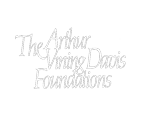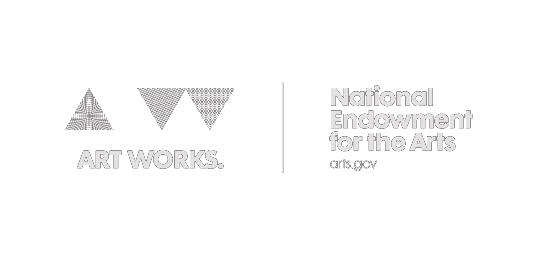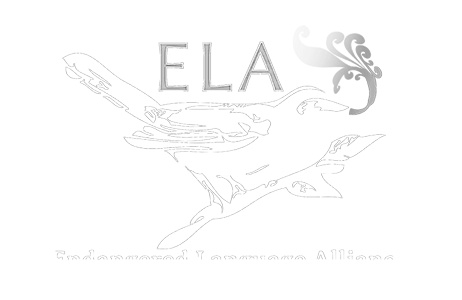Many of the Hawaiian language activists interviewed in Language Matters are affiliated with the University of Hawai‘i; linguists like Nick Evans and Ruth Singer, shown doing fieldwork on Goulburn Island, are researchers at Australian universities. A growing number of academic institutions, usually through their linguistics departments, now offer courses and degree programs on endangered language documentation, description, and revitalization. Many others focus on the languages of a particular country or region. In the U.S., the Less Commonly Taught Languages Project at the University of Minnesota provides a guide to institutions and resources for the teaching and learning of lesser-known languages, including some that are threatened. UNESCO has compiled a global list of universities that offer relevant degrees and courses. The following are some of the leading academic centers for the study of endangered languages, around the world and for particular regions:
Alaska Native Language Center (Alaska, USA)
Officially established by the state of Alaska and based at the University of Alaska Fairbanks, this academic center serves as “a center for the documentation and cultivation of the state’s 20 Native languages.” ANLC researchers have published story collections, dictionaries, grammars, and research papers, and assembled an archive containing “virtually everything written in or about Alaska Native languages.” The Center also offers classes and degrees focused on certain languages, helps Native communities prepare materials for education and revitalization programs, and working with teachers, school districts, and government agencies around the state.
American Indian Language Development Institute (University of Arizona, USA)
Institute at the University of Arizona, providing training for indigenous language revitalization efforts, especially in North America. ALIDI hosts conferences, workshops, and training sessions, working with schools, teachers, indigenous communities, and policymakers to further the learning of endangered languages.
American Indian Studies Research Institute (University of Indiana, USA)
In 1985 the American Indian Studies Research Institute (AISRI) was founded at Indiana University to serve as an interdisciplinary research center for projects focusing on the native peoples of the Americas. AISRI was founded in part on the premise that to fully understand and describe the language, culture, or history of a people, the study of any one of these topics must be informed by work in the others. From this beginning, American Indian studies flourished at Indiana University as students contributed their talents and more faculty joined the university. Their collective legacy to Indiana University today consists of invaluable archival, library, and museum collections that form the basis for on-going research projects, making Bloomington one of the richest centers for resource material in American Indian studies.
Cambridge Endangered Languages and Cultures Group (UK)
Forum for interdisciplinary research and ideas exchange on “the theory, methodology and practice of endangered language and culture documentation.” The group holds academic workshops, seminars, and occasional public events on linguistic diversity and cultural heritage at the University of Cambridge, including the Cambridge Conference on Language Endangerment.
Center for Endangered Language Documentation (Papua New Guinea)
Base for language documentation and description at the Universitas Negeri Papua (UNIPA) in Manokwari, Papua New Guinea, one of the most linguistically diverse countries in the world
Committee for Endangered Languages and Their Preservation (Linguistic Society of America)
Standing committee within the world’s largest professional organization for linguists, formed as an official response from the field of linguistics to the endangered languages crisis. The committee’s work is focused on raising awareness among linguists and the wider public, promoting ethical and strategic collaboration between linguists and communities, and coordinating with other academic and professional organizations.
Endangered Language Academic Programme (School of Oriental and African Studies, London, UK)
Part of the Hans Rausing Endangered Languages Project, which also includes a funding initiative [Link to Funders > Endangered Languages Documentation Programme TK] and an archive [Link to Archives > Endangered Languages Archive TK], this academic program is part of the oldest Department of Linguistics in the UK and offers a full suite of graduate courses on endangered language issues. Degrees granted include an MA in Language Documentation and Description, a Ph.D. in Field Linguistics, and two-year post-doctoral fellowships. Research covers the languages of Europe, Asia, and Aboriginal Australia, much of it published in the project’s Language Documentation and Description series.
Endangered Language Initiative (City University of New York, USA)
Research initiative to promote research on and teaching about endangered languages, in New York City and around the world. The program sponsors workshops, talks, visiting scholars, and other events, pairing students with the non-profit Endangered Language Alliance for fieldwork.
First Nations Languages Program (University of British Columbia, Canada)
Academic program offering a range of courses on language documentation, conservation, and revitalization, focused on the 32 surviving First Nations languages of British Columbia, all considered critically endangered.
International Centre for Language Revitalization (Auckland University of Technology, New Zealand)
Program within Te Ipukarea: The National Māori Language Institute, focused on developing research and expertise in endangered language revitalization, drawing on the lessons of Māori language movement. The Centre is creating online tools and offering a Master’s degree in Language Revitalisation Online, conceived for indigenous language activists around the world.
Laboratório de Linguas Indígenas (University of Brasília, Brazil)
Research center (website in Portuguese) focused on the many indigenous languages of Brazil. LALI linguists are involved in documentation, analysis, and description and also working in partnership with indigenous communities on dictionaries, school curricula, and other language development projects.
Recovering Voices (Washington D.C., USA)
Program of the Smithsonian Institution, “the world’s largest museum and research complex,” supported by the U.S. government. Recovering Voices works with Native communities in North America to “identify, share, and return cultural heritage and knowledge held by the Smithsonian and other institutions.” Recovering Voices also connects communities and linguists to help make those archival materials useful for present-day revitalization projects – most recently through its National Breath of Life Archival Institute for Indigenous Languages, a two-week, hands-on workshop.
University of Hawai‘i at Manoa (USA)
The Linguistics Department at the University of Hawai‘i is both a center for the study of Hawaiian and a hub for research on endangered languages across Asia and the Pacific. The department grants a Master’s degree in Language Documentation and Conservation and is home to the open-access academic journal Language Documentation & Conservation and the International Conference on Language Documentation & Conservation, a gathering of linguists and language activists held every two years.






